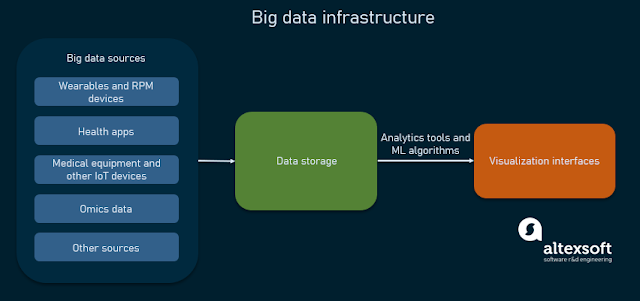The Importance of Big Data Analytics in the use of Fitness Trackers
This blog post discusses fitness trackers and the use of
big data analytics. Fitness trackers were first invented by Japanese Doctor,
Yoshuro Hatano in 1965. What was initially a very simple device used to track
the number of steps the wearer of the device had taken over a 24 hour period,
has now developed into what could be described as a one stop shop for reviewing
and analysing your overall health and wellbeing. For many, this collation and presentation of
health data has improved their overall health and wellbeing.
The use of big data analytics applied to fitness trackers, uses
large volumes of information from a variety of sources in real time to provide
accurate information on heart health, exercise levels and sleep patterns, wearers
of fitness trackers can see in real time to wearers at the flick of a wrist.
Technological advances in wearable fitness trackers have
further enhanced human connection to the internet of things (IoT), outside of
the health data that is collected, wearers now have a connection to a variety
of devices including calls, texts and music. All of this information is collected,
stored, analysed and used to generate reports and statistics that allow for
understanding of a broad range of information in an easily understanding format.
Big data analytics in fitness trackers not only provides the
wearer with practical information on their personal behaviours, but also has
potential implications on the healthcare systems and employment. In healthcare,
data can be used to monitor a patients health and, according to software
R&D engineering company, Altexsoft, alerts “can be set up, allowing for early
intervention and treatment”, having potentially live saving
abilities through the combined use of wearable tech and big data.





Hi Michelle,
ReplyDeleteAs someone who wears a fitness tracker daily, and who has been for the last 5 years, I had never given much thought into them until now. I use my fitbit daily to tell the time, monitor my heart rate during workouts and to keep me motivated and accountable for my movement throughout the day. It truly is amazing what technology can enable these days, especially in fitness trackers as there is so much data being processed on a daily bases that we never even stop to consider.
Orna
great post
ReplyDeletegreat tips and some excellent takeaways and food for thought.
Caitriona